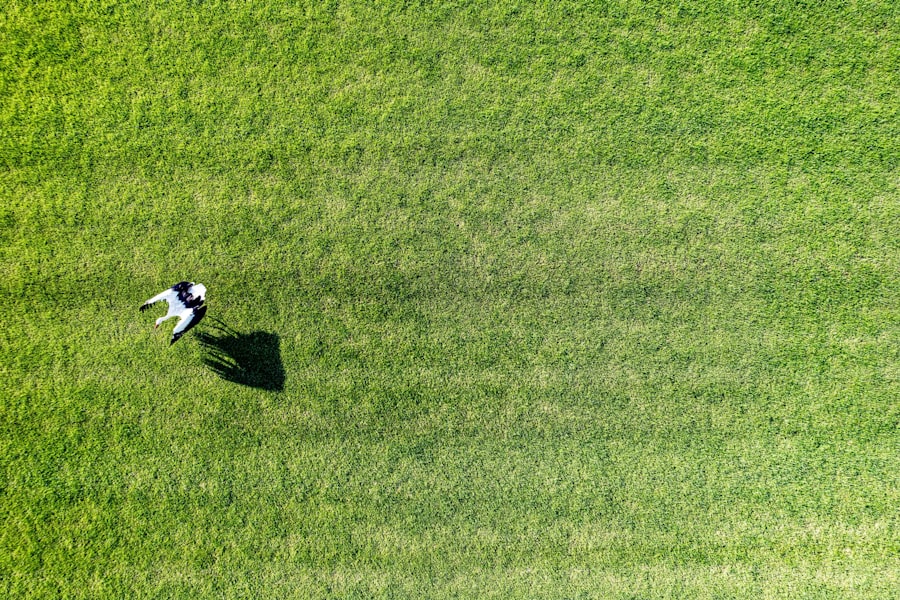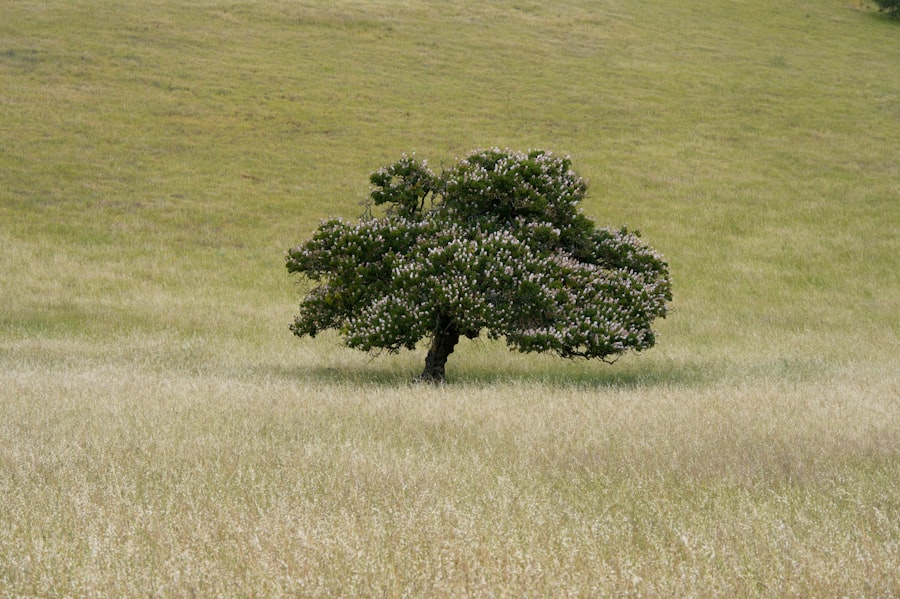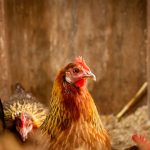Chickens are widely known for their contributions to food production, primarily through eggs and meat. However, their potential as natural lawn maintenance agents is often underappreciated. Integrating chickens into grass management practices can offer a sustainable and eco-friendly approach to lawn care.
These birds are instinctive foragers, capable of assisting in weed control, insect management, and pest reduction. Additionally, their droppings serve as a natural fertilizer, enriching the soil. This article examines the advantages of utilizing chickens for grass grazing, their effectiveness in controlling weeds and insects, important factors to consider when incorporating chickens into lawn care routines, and possible challenges associated with this method.
Table of Contents
- 1 The Benefits of Allowing Chickens to Graze on Grass
- 2 How Chickens Help Control Weeds and Insects
- 3 Considerations for Allowing Chickens to Roam on Your Property
- 4 Tips for Integrating Chickens into Your Lawn Maintenance Routine
- 5 Potential Drawbacks of Allowing Chickens to Graze on Grass
- 6 The Role of Chickens in Sustainable Lawn Care
- 7 FAQs
Key Takeaways
- Chickens can play a valuable role in lawn maintenance by grazing on grass and controlling weeds and insects.
- Allowing chickens to graze on grass can benefit the lawn by providing natural fertilization and aeration.
- Chickens help control weeds and insects by eating them, reducing the need for chemical pesticides.
- Considerations for allowing chickens to roam on your property include providing adequate space, protection from predators, and managing their impact on the lawn.
- Integrating chickens into your lawn maintenance routine can be achieved by providing designated grazing areas and adjusting feeding schedules.
- Potential drawbacks of allowing chickens to graze on grass include damage to the lawn, noise, and potential conflicts with neighbors.
- In conclusion, chickens can play a sustainable role in lawn care by providing natural maintenance and pest control benefits.
The Benefits of Allowing Chickens to Graze on Grass
Natural Pest Control
Chickens are natural foragers and will eagerly consume a variety of insects, including beetles, grubs, caterpillars, and even ticks. This natural pest control can help reduce the need for chemical pesticides, making it a more environmentally friendly option for lawn maintenance.
Soil Health and Weed Prevention
Chickens will also eat weed seeds, helping to prevent the spread of weeds in your lawn. Their constant pecking and scratching aerate the soil, promoting healthy grass growth. Furthermore, as chickens graze, they naturally fertilize the soil with their droppings, providing a source of organic fertilizer that can improve the overall health of the lawn.
Benefits for Chickens
Allowing chickens to graze on grass not only benefits the lawn but also provides the chickens with a natural and varied diet, contributing to their overall health and well-being.
How Chickens Help Control Weeds and Insects

Chickens are natural foragers and are highly effective at controlling weeds and insects in a lawn or garden setting. As they scratch and peck at the ground, they consume a wide variety of insects, including beetles, grubs, caterpillars, and even ticks. This natural pest control can significantly reduce the need for chemical pesticides, making it a more sustainable and environmentally friendly option for controlling insect populations in your lawn.
Additionally, chickens will also eat weed seeds, preventing them from germinating and spreading throughout the lawn. Their constant pecking and scratching also helps to aerate the soil, promoting healthy grass growth and reducing the likelihood of weed infestations. By allowing chickens to graze on grass, you can harness their natural instincts as foragers to help maintain a healthy and pest-free lawn without the need for harmful chemicals.
Considerations for Allowing Chickens to Roam on Your Property
While allowing chickens to graze on grass can offer numerous benefits for lawn maintenance, there are several important considerations to keep in mind before integrating chickens into your property. First and foremost, it’s essential to check local regulations and zoning laws regarding the keeping of chickens. Some areas may have restrictions on the number of chickens allowed or specific requirements for coop construction and maintenance.
Additionally, it’s important to consider the potential impact of chickens on your landscaping and garden beds. Chickens are natural diggers and can quickly create bare patches in the lawn or disturb delicate plants if not properly managed. Fencing off certain areas or providing designated grazing spaces can help mitigate these issues.
Finally, it’s crucial to provide adequate shelter, food, and water for the chickens to ensure their health and well-being while they graze on the grass.
Tips for Integrating Chickens into Your Lawn Maintenance Routine
Integrating chickens into your lawn maintenance routine requires careful planning and consideration to ensure that both the chickens and the lawn thrive. One important aspect to consider is providing adequate shelter and protection for the chickens. A secure coop or shelter is essential to protect them from predators and inclement weather.
Additionally, providing access to fresh water and a balanced diet will help keep the chickens healthy and productive as they graze on the grass. It’s also important to establish designated grazing areas to prevent overgrazing in certain areas of the lawn. Rotating grazing areas can help prevent bare patches from forming while allowing the grass time to recover.
Finally, regular monitoring of the chickens’ impact on the lawn is essential to ensure that they are effectively controlling weeds and insects without causing damage to the grass or landscaping.
Potential Drawbacks of Allowing Chickens to Graze on Grass

Risks of Overgrazing and Damage to Landscaping
One potential issue is the risk of overgrazing, which can lead to bare patches in the lawn if not properly managed. Additionally, chickens are natural diggers and can disturb delicate plants or landscaping if allowed unrestricted access to certain areas.
Unsightly Droppings and Additional Maintenance Tasks
Their droppings can also create unsightly patches in the lawn if not regularly managed or spread evenly across the grass. Furthermore, some homeowners may find that the presence of chickens in their yard creates additional maintenance tasks, such as cleaning up droppings or managing coop odors.
Weighing the Pros and Cons
It’s important to carefully weigh these potential drawbacks against the benefits of allowing chickens to graze on grass before integrating them into your lawn maintenance routine.
The Role of Chickens in Sustainable Lawn Care
In conclusion, allowing chickens to graze on grass can be a sustainable and environmentally friendly way to maintain a healthy lawn. Chickens are natural foragers and can help control weeds, insects, and pests while also fertilizing the soil with their droppings. By harnessing their natural instincts as foragers, homeowners can reduce their reliance on chemical pesticides and fertilizers while promoting a healthier lawn ecosystem.
However, it’s important to carefully consider the potential impact of chickens on your property and take steps to mitigate any potential drawbacks. With careful planning and management, integrating chickens into your lawn maintenance routine can be a rewarding and beneficial experience for both the chickens and the health of your lawn.
If you’re interested in learning more about how chickens can help keep grass down, check out this article on The Chicken Coop Country Diner. It provides valuable information on the benefits of allowing chickens to roam and graze in your yard or garden.
FAQs
What is the role of chickens in keeping grass down?
Chickens can help keep grass down by foraging and eating the grass, which prevents it from becoming overgrown.
How do chickens keep grass down?
Chickens use their beaks to peck at the grass, eating it and preventing it from growing too tall.
Do chickens have any other benefits for grass maintenance?
Yes, chickens also scratch at the ground, which can help to break up and aerate the soil, promoting healthy grass growth.
Are there any drawbacks to using chickens to keep grass down?
Chickens can cause damage to grass if they are allowed to overgraze an area, so it’s important to manage their access to the grass.
What are some tips for using chickens to keep grass down?
Rotate the chickens to different areas to prevent overgrazing, provide supplemental feed to prevent them from eating too much grass, and monitor their impact on the grass regularly.
Meet Walter, the feathered-friend fanatic of Florida! Nestled in the sunshine state, Walter struts through life with his feathered companions, clucking his way to happiness. With a coop that’s fancier than a five-star hotel, he’s the Don Juan of the chicken world. When he’s not teaching his hens to do the cha-cha, you’ll find him in a heated debate with his prized rooster, Sir Clucks-a-Lot. Walter’s poultry passion is no yolk; he’s the sunny-side-up guy you never knew you needed in your flock of friends!







